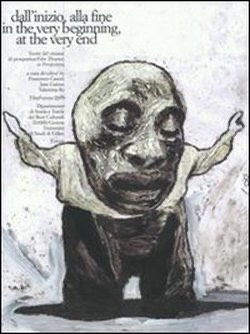News and Opinion
2010 Film Industry Statistics
The Motion Picture Producers Association of Japan (Eiren) released their statistics for the film industry for 2010. You can compare them to those from 2009.
The results are again good for Japanese film, and a bit better as a whole for the industry compared to last year. Total box office went up 7.1% to 220.7 billion yen (a record), with attendance climbing 3% to 174 million. Japanese films again beat foreign films at the box office 53.6% to 46.4%, their lead declining slightly again but still winning in four out of the last five years. The box office for Japanese films rose only 0.8% to 118 billion yen, which means that the expansion in the industry was largely in foreign films. The total number of films released declined again, from 762 to 716, with the number for Japanese films also declining from 448 to 408. The average ticket price increased by 49 yen to 1266 yen (probably due to 3-D), while the number of screens continued to increase (to 3412 from 3396).
15 Japanese films earned more than 20 billion yen at the 2010 box office, less than the 18 from 2009. Of the top 20 films, 15 were distributed by Toho, with Arrietty, Umizaru 3 The Last Message, Bayside Shakedown 3, One Piece, Pokemon, and part one of Nodame Cantabile being the six to top 40 billion (all were distributed by Toho except for One Piece). Unlike last year, the top film at the BO was not Japanese: Avatar, Alice in Wonderland, and Toy Story 3 all beat Arrietty (though in part through 3-D prices).
Beginning Japanese Film Theory
 My current project is to write a book on the history of Japanese film theory. It is a rich and vibrant history, but unfortunately little known not only outside but even inside Japan. I've already published a number of pieces (such as in the Iwanami series and in the RJCS special issue) and given talks about it (including one at McGill last week--thanks for the great turnout and the great questions!).
My current project is to write a book on the history of Japanese film theory. It is a rich and vibrant history, but unfortunately little known not only outside but even inside Japan. I've already published a number of pieces (such as in the Iwanami series and in the RJCS special issue) and given talks about it (including one at McGill last week--thanks for the great turnout and the great questions!).
One of these pieces is another perspective on Gonda Yasunosuke, the early thinker who is also featured in Visions of Japanese Modernity, that I published in an Italian catalogue which arose out of several conferences in Udine. There is actually now a world-wide effort to rethink the history of film theory, one that is spearheaded by the Permanent Seminar in the History of Film Theories, and led by Jane Gaines of Columbia and Francesco Casetti, author of Eye of the Century and my new colleague at Yale. It is trying to move away from film theory history in the singular, and seek out different and alternative histories. The Udine seminars were coordinated by the Permanent Seminar.

